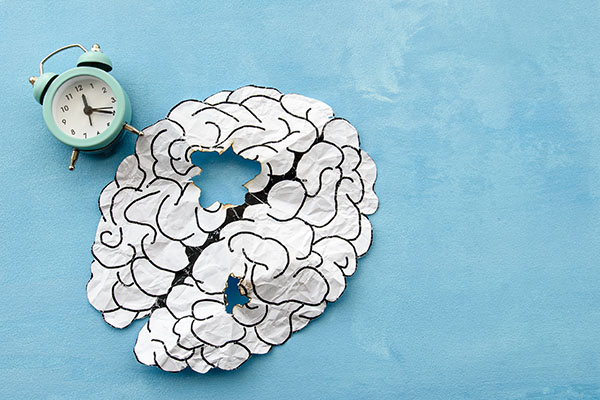How Vitamins D and B12 could be the missing link in preventing dementia
By isabelle // 2025-04-14
Tweet
Share
Copy

- Vitamin D and B12 deficiencies are strongly linked to increased dementia risk, with severe vitamin D deficiency raising risk by nearly 50%.
- Conventional medicine still overlooks preventive nutritional strategies despite overwhelming research.
- Even "normal" B12 levels may not protect against cognitive decline, suggesting current thresholds are insufficient.
- Vitamin D supports brain function by regulating neurotransmitters and memory formation.
- Proactive supplementation of vitamins D (5,000 IU/day) and B12 could be crucial for cognitive health, especially in older adults.
The dementia crisis and the vitamin gap
Dementia affects 55 million people worldwide, with numbers projected to triple by 2050. Yet conventional approaches remain fixated on pharmaceutical interventions rather than prevention. Research from Oxford University, the University of California San Francisco (UCSF), and meta-analyses in BMC Neurology and Alzheimer’s & Dementia highlight a consistent theme: deficiencies in key vitamins are silently undermining brain health. Vitamin D deficiency alone raises dementia risk by 32%, with severe deficiency (levels ≤10 ng/mL) increasing it by nearly 50%. Meanwhile, UCSF scientists found that even "normal" B12 levels—as currently defined—may fail to protect against cognitive slowing and white-matter damage, early markers of dementia.Why vitamin D matters for the brain
Vitamin D’s role extends far beyond bone health. It regulates calcium homeostasis, critical for memory formation, and acts as a neuroprotective antioxidant, combating glutamate-induced neuron death. A 2025 BMC Neurology meta-analysis confirmed that maintaining sufficient vitamin D levels could slash dementia risk by a third. Yet 29% of U.S. adults remain deficient—a gap experts attribute to inadequate dietary intake and limited sun exposure. "Vitamin D supports neurotransmitter function in the brain," explains Dr. Peter Gliebus, a neurologist at the Marcus Neuroscience Institute. "Neurotransmitters are vital chemicals that facilitate communication between nerve cells." Despite this, mainstream guidelines lag. While the NIH recommends 600–800 IU daily for adults, leading researchers advocate for 5,000 IU of D3 with healthy fats to achieve optimal levels (≥50 ng/mL).B12: The "normal" levels that aren’t enough
Conventional medicine defines B12 deficiency at 148 pmol/L, but UCSF’s study of 231 older adults revealed cognitive slowdowns and brain lesions in those averaging 414.8 pmol/L—far above the threshold. "Revisiting the definition of B12 deficiency to incorporate functional biomarkers could lead to earlier intervention and prevention of cognitive decline," argues Dr. Ari J. Green of UCSF. The study’s co-author, Alexandra Beaudry-Richard, warns that "subtle manifestations of low B12 may affect a much larger proportion of the population than we realize."Empowerment through nutrition
The takeaway is clear: proactive nutritional strategies could be a game-changer. While skeptics caution that correlation doesn’t equal causation, the weight of evidence is hard to ignore. For vitamin D, people could aim for 50+ ng/mL through D3 supplements (5,000 IU/day) and healthy fats; for B12, consider supplementation even if levels are "normal," especially after age 50. With dementia poised to cripple healthcare systems globally, redefining nutritional standards is urgent. The science is clear: vitamins D and B12 are not optional—they’re essential armor against cognitive decline. For now, individuals must take ownership of their brain health, leveraging natural solutions that conventional medicine has yet to fully endorse. The power to prevent dementia may lie not in a pill, but in the vitamins we’ve underestimated for decades. Sources for this article include: MindBodyGreen.com VeryWellHealth.com FoxNews.comTweet
Share
Copy
Tagged Under:
brain function natural medicine dementia vitamin D nutrients alternative medicine prevention vitamin deficiency mental cures remedies vitamin B12 mind body science dementia prevention
You Might Also Like
The sweet power of Honey: A versatile superfood for health and wellness
By Laura Harris // Share
DMSO and Natural Dyes: A suppressed cancer treatment resurfaces in independent research
By Finn Heartley // Share
By Finn Heartley // Share
Study finds bananas more effective than salt reduction for lowering blood pressure
By Cassie B. // Share
Recent News
Ancient mummies rewrite human history with "ghost" lineage discovery
By willowt // Share
Trump administration wins court approval for sweeping immigrant registration rule
By lauraharris // Share











